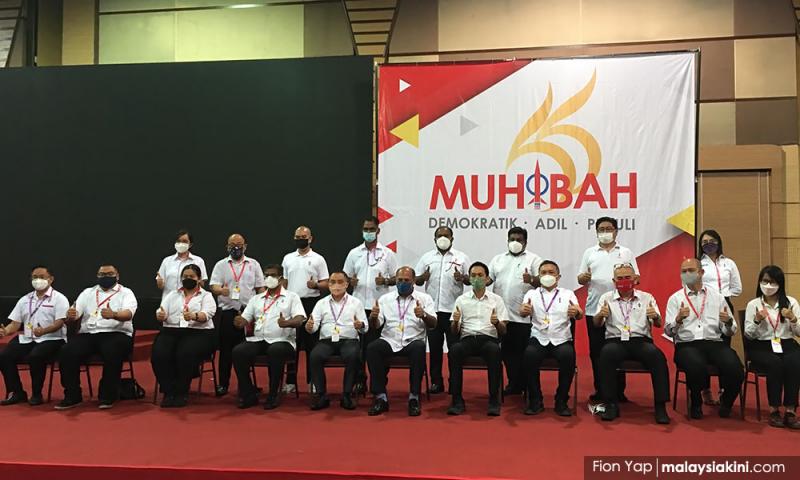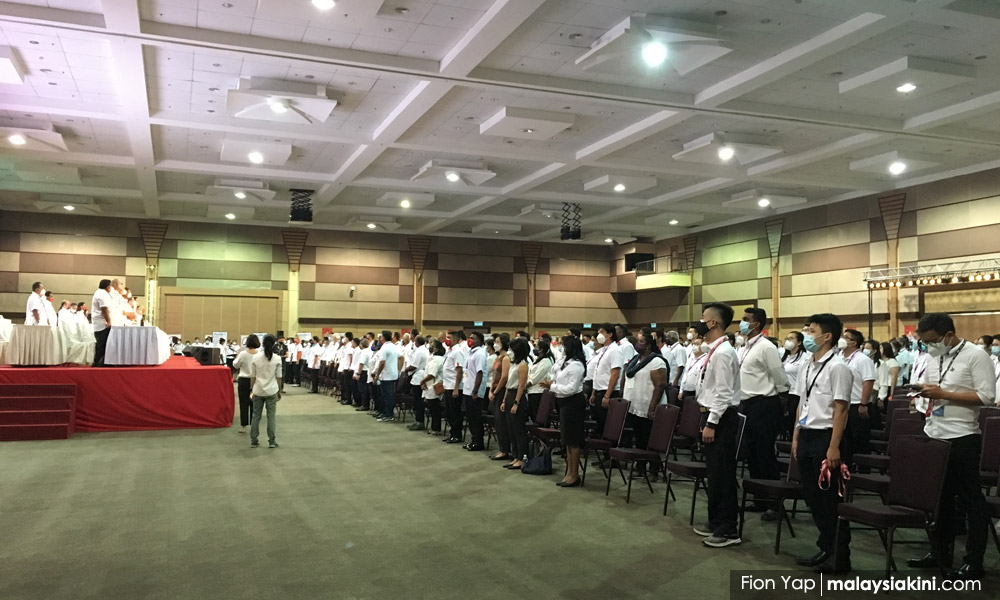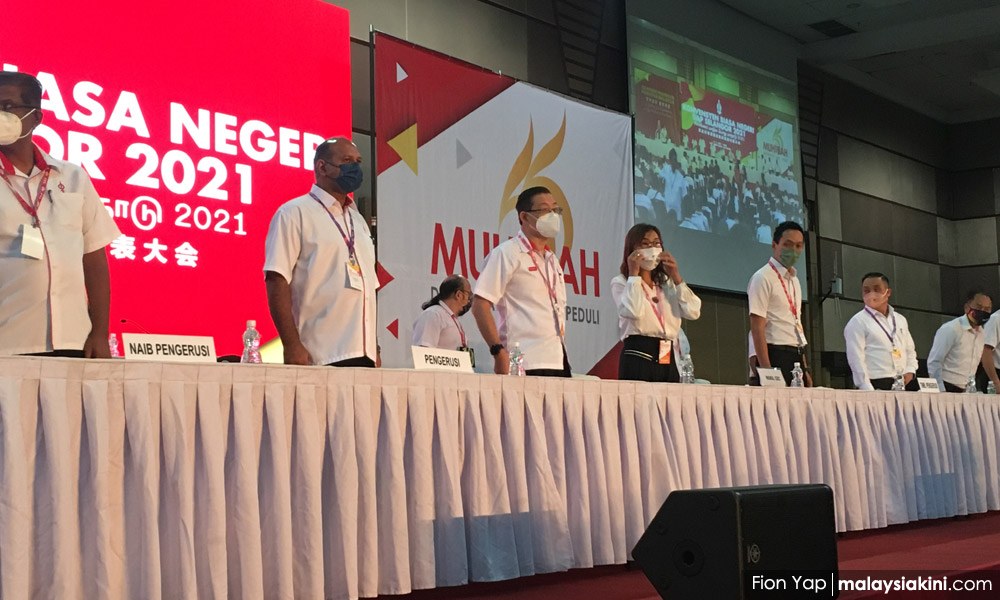MP SPEAKS | Challenges and opportunities ahead for S'gor DAP
MP SPEAKS | The Selangor DAP committee elections, which have been postponed since May, finally took place yesterday on Nov 14.
While the media headlines will undoubtedly focus on who was and who was not elected, the election campaign itself, which was drawn out for more than a year, highlights many of the challenges as well as opportunities that Selangor DAP faces as the party moves ahead in the most developed and economically important state in the country.
False narrative of 'grassroots versus elites'
The Selangor DAP election was falsely painted as a contest between the so-called “grassroots” candidates comprising of a few local councillors (past and current), a handful of state representatives (assemblypersons) and a few incumbent state committee members versus the “elites” who were mostly the elected representatives (MPs as well as assemblypersons).
While this may have been a useful narrative for the media to write about and for some candidates to use as a campaign slogan, the truth of the matter is that this was and is a false narrative.
All elected representatives must be close to their own grassroots, especially with the members in their respective constituencies, so that they can have a good working relationship to increase the outreach and influence of the party.
While an elected representative may not get along with all members in his or her constituency, I can safely say that nearly all elected representatives in Selangor DAP enjoy majority support of the grassroots in their respective constituencies.
Ironically, some of the so-called grassroots leaders do not even enjoy majority support from the members in their own areas because of their poor service records, bad reputations, and the inability to work with other grassroots members.
Some in the media and some candidates during the campaign have tried to paint a division between the supposedly more “educated” representatives who are labelled as the “elites” versus the supposedly less “educated” grassroots leaders.
Again, this is a false narrative as someone’s service record can be easily evaluated by members as well as voters and this has nothing to do with his or her educational background.
A so-called “educated” elite can be more hardworking and goes down to the ground more often than a so-called “grassroots” leader.
Thankfully, the election results in Selangor show that the campaign to paint these false narratives have failed dramatically, despite some last-minute desperate attempts by certain candidates.
Teamwork, checks and balances
The election results in Selangor this time round highlights two distinct trends among the DAP members in the state.
Firstly, the members clearly want a strong and united DAP with leaders who can work effectively with one another to increase the influence and reputation of the party in the state and nationally.
The candidates without a strong track record of teamwork and some with a reputation of causing disunity and harm to the party clearly lost out. This does not mean that the members do not want a culture of internal democracy and healthy debate within the party.
But it does mean that the way this discussion takes place must not result in harming the larger reputation and internal cohesion of the party.
At the same time, the members have also shown that they want an element of healthy “checks and balances” within the state committee.
Four of the 15 candidates elected to the state committee are not elected representatives (MPs or assemblypersons) while five elected representatives (all assemblypersons) failed to win enough votes to get into the top 15.
This is a healthy trend as it results in a state committee that has different views on several issues and with different skills and capabilities based on their diverse backgrounds.
As long as the core principles and the future direction of the state committee are aligned, these differences demonstrate the strength of diversity within the party leadership.
Finding space for new talent
The DAP I’ve known has always been focused on giving opportunities to younger members and leaders to gain experience and exposure at different levels of government and elected office since the 2000s.
The newly elected Selangor state committee is also relatively young by the standards of politics in the country with no one above the age of 50. Most of us are in our 30s and 40s and I am a relatively “senior” member of the committee at 46 years of age.
We have appointed a few younger leaders with diverse backgrounds among the five co-opted members including Michelle Ng, a lawyer by training and the assemblyperson for Subang Jaya, Dr Quah Perng Fei, a medical doctor and local councillor in Klang and Yugarajah Palanisamy, a former assistant to a Selangor exco member and current local councillor in Shah Alam.
The process of giving younger members and leaders platforms at various levels for them to contribute will continue with the future appointment of heads of various bureaus in the state and the continued rejuvenation of candidates at the local, women’s and youth councils in the various districts and municipalities in Selangor.
The challenge for the party is to ensure that these young leaders are given the space and opportunity to be effective in their respective roles in the party and in the state government.
Working as a team for progressive state govt policies
Moving forward, the main challenge facing the DAP in Selangor is to find new strategies for different leaders and members within the party to advocate for more progressive and inclusive policies in the state government.
This must be done in a concerted, organised, and holistic manner with different leaders and members working as a team to achieve common goals.
This includes policy domains such as more inclusive housing policies, better public transportation planning, more sustainable initiatives at the local government level, and better preparation to deal with public health challenges especially in light of Covid-19 being an endemic virus that needs long term management.
This is not easy as there are various channels that can be used to communicate and put into effect these party aspirations as policies of the Pakatan Harapan state government which includes other Harapan component parties.
This requires strategic coordination and communication by the DAP with our Harapan coalition partners to find room to implement some of the policies and plans including on some potentially sensitive issues such as local government elections.
But this must start with a clear vision and strategic plan on the part of the Selangor state committee. And this needs to be done soon in preparation of ensuring that we have a good report card to show for Selangor before the next general election.
Warning signs to heed
As the DAP grows bigger and more diverse in our membership and as the stakes of being elected to positions in the party grow larger, it is not unexpected that the contests and the campaigns for these positions will grow more heated.
If done right, these party elections can lead to a healthier culture of democratic debate and contestation within a party. But if not careful, these elections may quickly turn into a contest to see which candidate can offer more “goodies” whether it is in the form of allocations or government positions to those branch leaders or local warlords who claim that they control a certain number of branches and the votes that comes with this control.
I have observed some branch leaders going to elected representatives and blatantly asking for allocations for the different NGOs which they control in exchange for their support during the state elections. This is an unhealthy development that could easily get out of hand if not properly handled.
The same concerns can be extended to those who ask for positions in state government-linked companies (GLCs) in exchange for political support.
S'gor's importance in national politics
DAP Selangor plays a crucial role in showing how we can play an effective role as an important component party holding influential positions in the state government to advocate for and implement policies that can bring about long-term positive impacts for the people of Selangor.
The effectiveness of DAP in Selangor – the performance of our leaders, our elected representatives, and our local councillors – and how we work with our Harapan component party leaders to achieve better outcomes for Selangor will provide a clear example of how we can and will govern as an effective coalition at the national level.
The work of the new Selangor DAP state committee began yesterday with the results of the state committee elections and must go on until the next general election.
ONG KIAN MING is Bangi MP and the DAP's assistant political education director.
The views expressed here are those of the author/contributor and do not necessarily represent the views of Malaysiakini.
RM12.50 / month
- Unlimited access to award-winning journalism
- Comment and share your opinions on all our articles
- Gift interesting stories to your friends
- Tax deductable


